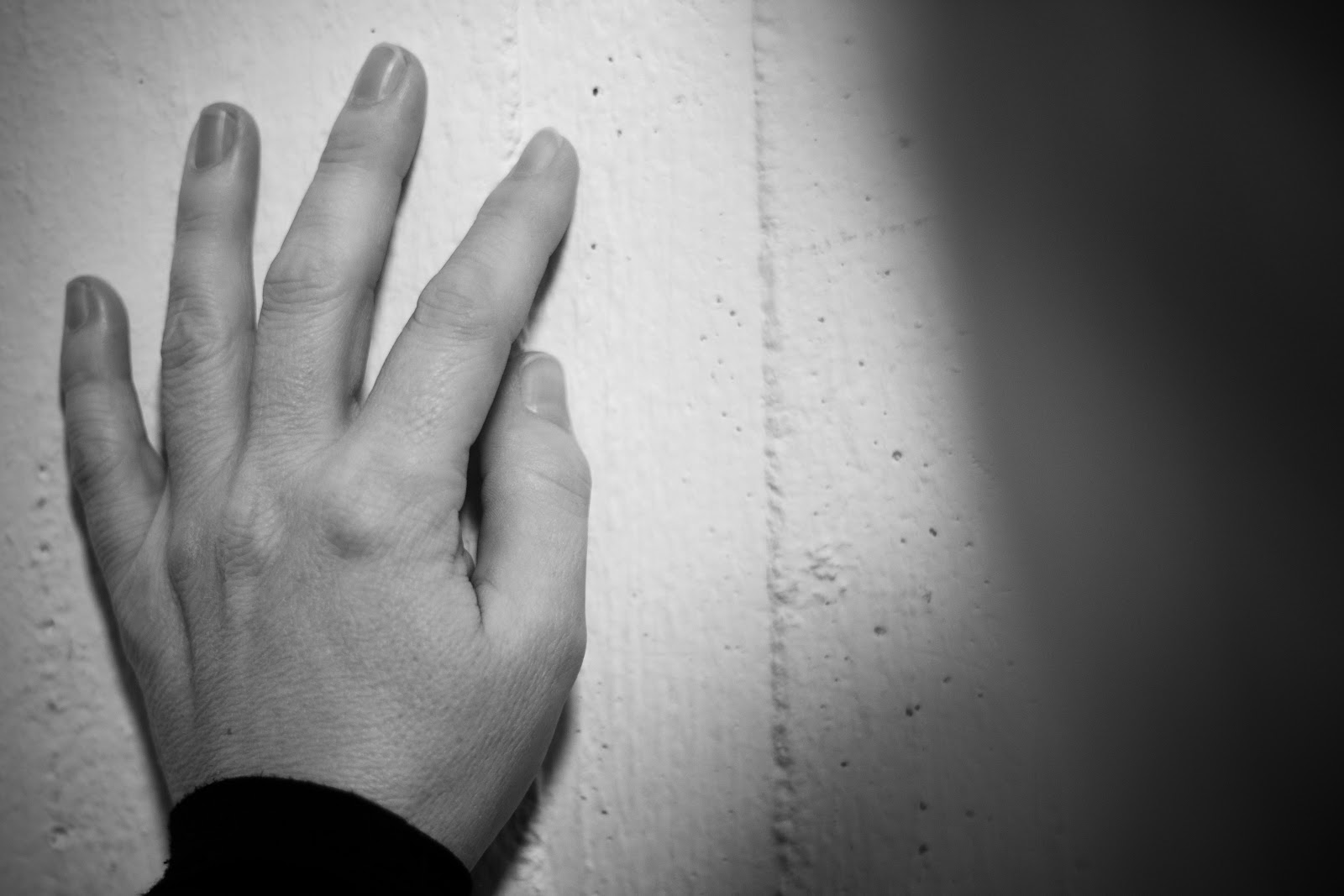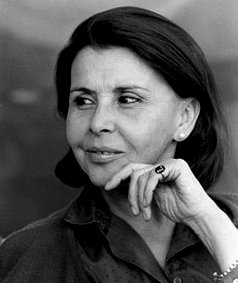
click on the image to view the video
Creators
Eduardo Yagüe, film-maker, Spain
Blanca Varela, writer, Peru
Jean Morris, translator, UK
Synopsis
A Media Voz is about the difficulty of the creative process, as a metaphor for understanding the meaning of life and passing of time.
Text
A Media Voz
Blanca Varela
la lentitud es belleza
copio estas líneas ajenas
respiro
acepto la luz
bajo el aire ralo de noviembre
bajo la hierba
sin color
bajo el cielo cascado
y gris
acepto el duelo y la fiesta
no he llegado
no llegaré jamás
en el centro de todo
esta el poema intacto
sol ineludible
noche sin volver la cabeza
merodeo su luz
su sombra animal
de palabras
husmeo su esplendor
su huella
sus restos
todo para decir
que alguna vez
estuve atenta
desarmada
sola casi
en la muerte
casi en el fuego
Under My Breath
Blanca Varela
Translated by Jean Morris
slowness is beauty
I copy out these alien lines
I breathe
accept the light
beneath the sparse November air
beneath grass
with no colour
beneath the hoarse
grey sky
I accept both grief and celebration
I have not arrived
and will never arrive
at the heart of everything
is the poem untouched
sun inescapable
night without turning my head
I prowl its light
and shadow an animal
of words
I inhale its splendour
its traces
its remains
all so that I can say
sometimes
I was attentive
was disarmed
alone almost
in death
almost in flames
Eduardo Yagüe on the project
I was interested in the language of Varela's poem (close to the Spanish mystic poets language), and the topics of the poem: the difficulty of getting to the poem, to its essence, the difficulty of the creative process, the impossibility of understanding it.
'Slowness is beauty' is a very important phrase (I was tempted to use it as the title of the video), for me one of the most important of the poem. That's why it is the verse that the actress copies, the verse that she crosses out in her frustration of understanding, and the verse that is repeated after the credits. 'Slowness is beauty' is also a call out to reflection about contemporary velocity and the superficiality of all things surround us.
I wanted to create a slow, sober, conceptual video, based on the expression of the magnificent actress Ana Rodríguez Carlson, who also reads the poem in a profound and fragile way.
This was my last video made in Stockholm, where I have been developing my artistic career the last four years, and where I recorded 13 videopoems (almost half of my entire production), and four musical videoclips.

Eduardo Yagüe

Blanca Varela (source)
Bios
Eduardo Yagüe (Gijón, Spain, 1970), studied Dramatic Arts and Spanish Language and Literature. In Madrid he worked as an actor in theater and film. He is interested in mixing genres in his videos, searching the limits and interactions of poetic and cinematographic languages. His works are characterized by the roles of actors and by the choice of strong and emotionally moving poems. His videos have been screened in festivals around the world. Eduardo is one of the international video artists interviewed in the videopoetry documentary, 'Versogramas' (2017). His video 'Qué es el amor' was awarded in the first Atticus Review Videpoetry Contest in December 2018.
Blanca Varela (Lima, Perú, 1926 - 2009), was a Peruvian poet, considered one of the most important poetic voices from Latin America. In 1949 she travelled to Paris where she met Octavio Paz, a key figure in her life. He introduced her to artists and intellectuals such as André Breton, Jean-Paul Sartre, Simone de Beauvoir, Henri Michaux, Alberto Giacometti and Fernand Léger, among others. Paz persuaded her to publish her poetry, and in the preface to the first edition of her debut book, 'Ese puerto existe' (1959), he wrote: "At that time we all used to sing. And among those songs you could hear a lonesome song of one Peruvian girl: Blanca Varela. The most secret, timid and natural of them all." Later Varela lived in Florence and Washington, D.C. In 1962 she returned to Lima, afterwards travelling mainly to US, Spain and France.
Jean Morris is a British writer, editor and Spanish/French/English translator living in London. She collaborates with Eduardo Yagüe, translating the poems into English. One of her wonderful poems was used in Yagüe's video, 'Domingo después del vendaval'.